Bruderkuss München Frauenkirche Rotwein 1,5 L.
 Q.b.A. Pfälz, Pfälz, Germany.
Q.b.A. Pfälz, Pfälz, Germany.![]() Merlot, Pinot Black, Portugieser and Dornfelder.
Merlot, Pinot Black, Portugieser and Dornfelder.![]() Red wine Magnum Bottle, 1,5 L.
Red wine Magnum Bottle, 1,5 L.
 EUR, Final price!
EUR, Final price! Receive it
Receive it  February Monday 24
February Monday 24 FREE SHIPPING!
FREE SHIPPING!| Producer | Bruderkuss. |
| Name | München Frauenkirche Rotwein. |
| Variety |
|
| Country of origin |
 Germany. Germany.
|
| Region of origin |
 Pfälz. Pfälz.
|
| Appellation of origin |
 Q.b.A. Pfälz. Q.b.A. Pfälz.
|
| (UE)401/2010 Certification |
Qualitätswein bestimmter Anbaugebiete (Q.b.A.) Q.b.A. Pfälz. |
| Production region | The production region of Q.b.A. Pfälz is located in Las comarcas de la región vinícola del Palatinado, en Alemania. Está localizada al sur del estado federado de Renania-Palatinado y se extiende a pocos kilómetros al oeste del río Rin hasta la frontera con Francia, al sur, a lo largo de toda la zona conocida como Pfälzerwald. |
| Weight | 2.000 gr. (2,0 Kg.). |
| EAN | 4250011229846 |
| Typology |
Red wine. Q.b.A. Pfälz. |
| Variety |
|
| Vintage / Harvest |
Currently marketed by the producer.
|
| Format | Magnum Bottle. |
| Capacity | 1,5 L. |
| Alcohol content | 13.5% Vol. |
| Weight | 2.000 gr. (2,0 Kg.). |
| Special Format | Magnum Bottle. |
| Product reference | WAN4523562 |
| EAN | 4250011229846 |
| Actual price | 24,95 € . This product is currently not available. |
| Storage position | Lateral position, horizontal bottle. |
| Storage temperature |
Store at a constant temperature between 10-17ºC. Humidity should be constant around 60-80%. |
| Recommendations | Keep preferably away from light. |
| Visual tasting note | Dark, Honeyed tones, Cherry shades. |
| Olfactory tasting note | Quality toasts, Good woods, Very fruity. |
| Tasting note | Cocoa, Well integrated, Thyme, Fresh development. |
| Recommended pairing | Wildfowl, Smoked sardines, Fish stews. |
| Consumption temperature | 9ºC. |
| Consumption | It is recommended to drink in moderation and demonstrate a responsible consumption of alcoholic beverages. |
| Please keep in mind |
The information provided and referred to the product features and details has been provided by the expert, manufacturer or producer or published on the official sites. In no case can it be considered as assessment made by our team, unless expressly stated otherwise. We suggest you to refer to the comments and reviews posted by our customers and users to expand and contrast this information. |
| Misreading |
Our team provides this information and details in ESPAÑOL language. If you browse in another language note that the information contained may have been translated from the original language through an automated real-time process that has not been supervised by our human team. In case of doubt, misunderstanding or misreading about the content of this information you should refer to the original version of this page or contact our customer service team. |
| Product image |
The product image or its label is only relevant for graphic purposes, so it may not match the identification of the vintage or other features and details of the product for sale. This product is provided in the conditions and format in which it is marketed at the current time. This product is not identified or supplied in a specific vintage. The product image and label may not match the vintage identification or other characteristics and details of the product for sale. |
| Legal Notice |
It is against the law to sell or supply alcohol to, or to obtain alcohol on behalf of a person under the age of 18 years. If you are not more than 18 years old, you must leave this website. |
Selection by «Message in a Bottle®»
Red Wine. Premium Edition MBS Reserva. Customizable label.
3 Reviews of customers and website users. ( During the last 90 days )
Product Selection by Bruderkuss.
29 Products, The best selection by Bruderkuss.
Bruderkuss München Frauenkirche Rotwein 1,5 L.
Additional information.

|
«Bruderkuss München Frauenkirche Rotwein Pfälz» is produced by Bruderkuss. In the elaboration of «Bruderkuss München Frauenkirche Rotwein Pfälz» the grape varieties that are used are Merlot, Pinot Black, Portugieser and Dornfelder. «Bruderkuss München Frauenkirche Rotwein Pfälz» is a product from Germany. The production region of «Bruderkuss München Frauenkirche Rotwein Pfälz» is Pfälz. It is certified with Q.b.A. Pfälz. The production region of Q.b.A. Pfälz is located in Las comarcas de la región vinícola del Palatinado, en Alemania. Está localizada al sur del estado federado de Renania-Palatinado y se extiende a pocos kilómetros al oeste del río Rin hasta la frontera con Francia, al sur, a lo largo de toda la zona conocida como Pfälzerwald. The weight of «Bruderkuss München Frauenkirche Rotwein Pfälz» is 2.000 grams (2,0 Kg.). «Bruderkuss München Frauenkirche Rotwein Pfälz» is identified and marketed with the barcode EAN 4250011229846. |
Variety:
Merlot and Pinot Black.
Bruderkuss München Frauenkirche Rotwein 1,5 L.
Variety Merlot.
See Merlot Red wine list.
 Español [ ES ]
Español [ ES ]Origen.
La uva merlot, es una variedad de uva tinta de origen bordelés (Burdeos), al sudoeste de Francia que pertenece a la misma familia de los cabernet. Sus primeras plantaciones datan del siglo XIX. Es una cepa típica del Médoc Francés que, tras la Cabernet Sauvignon, es la segunda uva más plantada en el mundo, como consecuencia de que se aclimatan perfectamente a la mayoría de climas, tanto templados como cálidos. El 14% de las uvas plantadas en Francia son de esta variedad, mientras en Italia alcanza un 3%. La palabra merlot proviene de merle noir (palabra francesa), cuyo significado es mirlo. Su color es azul negruzco similar a la uva merlot.
Características.
La cepa de uva merlot bastante vigorosa, porte semierguido, buena fertilidad pero con poca producción, no se desarrollan muchos racimos por planta. Estos racimos son de tamaño medio a pequeño, con forma cónica alargada y no demasiado compacto. Las uvas merlot son pequeñas, muy uniforme a lo largo del racimo, esféricas, con un hollejo grueso, de color azul muy oscuro. Su pulpa es muy jugosa, consistente, sabrosa, dulce y despigmentada. El desborre es precoz y la maduración entre temprana y media, unos días después que el tempranillo. Si se vendimia antes se logran vinos más ácidos con lo que se aumenta su potencial para elaborar vinos de guarda. Si se retrasa su vendimia se obtienen vinos jugosos y frutales. Se adapta bien a suelos arcillosos y y ricos en calcio. La uva merlot también recibe el nombre de Alicante, Bigney Rouge, Crabutet noir, Merlau Rouge, Merlaut Noir, Merlo, Merlo Noir, Merlot Rouge, Planta de Médoc, Sème du flube, Sémilhon rouge, además de Vitraille. Variedad poco sensible a las enfermedades de la madera y a la desecación del raquis, aunque si es sensible al Mildiu y a la botritis en la maduración. Sensible al Black roth, y también a Cicadelidos y los Ácaros. Las heladas primaverales le afectan, aunque no excesivamente, pero su madera es muy sensible a los inviernos demasiado fríos. Se adapta muy bien a los distintos tipos de suelo. La cosecha con sequía es muy escasa, pero se suple bien con el riego por goteo. Sensible al corrimiento del racimo como consecuencia de la climatología lo que se puede corregir aportando boro. Requiere climas frescos, ya que en climas calurosos pierde pronto su acidez y su equilibrio tánico. Es fundamental realizar un adecuado abonado potásico., Se aconseja la conducción en espaldera, para el apoyo de su vegetación funcionando muy bien con poda de Guyot de siete u ocho yemas.
Zonas de cultivo.
La mayor presencia de la uva merlot se da en Italia y también Francia, en la región del Médoc. En España podemos encontrarla en Navarra y también en Cataluña, La Mancha, Huesca y se está empezando a plantar en Andalucia. También se localizan viñedos de merlot en la península balcánica, en Bulgaria, Croacia, Eslovenia, Montenegro, además de Rumania. Fuera de Europa existen plantaciones de esta variedad en California y región nordeste de Estados Unidos, Argentina, Nueva Zelanda, Sudáfrica, Chile y Australia.
Vinos.
Produce vinos redondos con cuerpo y estructurados. Vinos intensos de buena graduación alcohólica, que agradecen la crianza en madera. Son vinos con pocos taninos y acidez ligera, por lo tanto, se pueden mezclar con vinos más tánicos para aportarles así equilibrio. Es un vino más suave y también más redondo que el Cabernet Sauvignon. Aromas complejos, además de elegantes. Aromas a frutas rojas como cereza, ciruela. Especias, tabaco y también trufa. Los vinos más jóvenes poseen un aroma a frutas rojas, como la confitura bayas, cassis y notas vegetales. En los crianza encontramos toques de vainillas, frutas rojas y maduras como ciruela, tabaco, humo, cedro y también tostados, torrefacto como el café. Es de menor carácter tánico y además posee menos acidez que la cabernet Sauvignon, por lo que se suele mezclar con ésta, así como con la cabernet franc, resultando vinos más ligeros y frutales. También se usa para crear vinos merlot monovarietales.
Red wine Merlot
Product Selection Red wine Merlot.
Bruderkuss München Frauenkirche Rotwein 1,5 L.
Variety Pinot Black.
See Pinot Black Red wine list.
 Español [ ES ]
Español [ ES ]Origen.
La variedad pinot negro, o más conocida con el nombre en francés pinot noir, pertenece a la familia de las uvas pinot y, aunque no está muy claro el origen de la variedad, se piensa que la pinot noir fue la primera de la familia de las pinot, y una de las primeras variedades obtenidas a partir de viñas silvestres en la parte occidental de Europa Central. A la región del Lago de Constanza llegó alrededor del año 900. En la región de Rheingau comenzó a cultivarse en el siglo XIII. Los perfiles de ADN de la pinot gris y la pinot blanc son idénticos a los de la pinot noir, así que parece claro que se derivan de ella. Sea como sea, las pinot son una familia, y una familia muy querida, entre las que se cuentan otras mutaciones como la pinot meunier o la pinot gouges o musigny. El nombre pinot noir es de origen francés y, probablemente, de las palabras pino (pine) y negro (noir), ya que esta variedad tiene los racimos en forma de cono, como las piñas.
Características.
Las cepas medianamente vigorosas, de porte tumbado, y presentan un desborre y maduración precoces. Desarrollan racimos pequeños, cilíndricos o cónicos, de forma similar a una piña, muy compactos y uniformes, con pedúnculo corto y sin lignificación. Las uvas son pequeñas o medianas y esféricas, tienen una piel oscura, casi negra y azulada, presentando una cicatriz estilar muy marcada y de difícil desprendimiento de su pedúnculo. A pesar de tener un hollejo grueso, es muy sensible al agrietado y a los roces. La pulpa es antociánica, poco o nada pigmentada, blanda y muy jugosa con sabor herbáceo. ES una variedad muy delicada en su cultivo, ya que es muy sensible a las enfermedades fúngicas de la madera a la botritis y al desecado del raspón. Es sensible al mildiu, al oídio y al corrimiento climático, así como a la polilla del racimo, a los cicadélidos y a los ácaros. Se adapta bien a climas templados y a todo tipo de suelos, siempre que tengan buen drenaje, aunque lo ideal sería elegir suelos argilocalcáreos. Es sensible a los fríos primaverales y muy sensible a temperaturas excesivas en verano, ya que se solean sus racimos y pierde muy pronto sus hojas. En climas cálidos madura muy rápidamente y es sensible a las quemaduras solares del fruto. Tiene altas necesidades de magnesio, respondiendo muy bien a los aportes de fósforo y tiene bajos requerimientos en nitrogeno y potasio. La variedad pinot noir recibe también el nombre de Spätburgunder, burgunder, pineau, klevner, plant fin, noirien, pinoz y dorada.
Zonas de cultivo.
La pinot noir es originaria del viñedo de Borgoña, concretamente de la región de Côte-d'Or. También se planta en Italia, España, Alemania, Luxemburgo, Hungría, Kosovo, la Macedonia del Norte, Moldavia, Grecia, Rumanía, Serbia, Eslovenia, Suiza, Bulgaria, República Checa, Eslovaquia, Ucrania, el norte de Croacia, la República de Georgia, Israel, Chile, Argentina, Uruguay, México y Estados Unidos. En Alemania se cultivan unas 11.800 hectáreas de pinot noir, conocida como spätburgunder, lo que representa más del diez por ciento del total de las parras en el país. La mayoría de los viñedos de pinot noir se hallan en Baden (casi 5.900 hectáreas) y en el Palatinado (casi 1.600 hectáreas). Otras regiones importantes de cultivo son Rheinhessen, Wurtemberg, Rheingau y la cuenca del Ahr.
Vinos.
La variedad pinot noir produce mostos con mucho azúcar, siempre que la uva haya tenido una maduración correcta. Estos mostos, de acidez media, recien prensados son incoloros, pero si se mantienen en contacto con los hollejos, rápidamente toman un color primero rosa intenso y posteriormente rojo rubí intenso muy brillante aunque con reflejos marronáceos, por ello pueden dar vinos blancos por sangrado o escurrido rápido y tintos en elaboraciones habituales. Produce un vino de alta calidad apto para crianza, fino, con intensidad y complejo. Es una variedad adecuada para cavas, champagne y vinos de aguja y también para vinos de crianza con cuerpo y vigor, con alta complejidad aromática. El gran rango de buqués, sabores, texturas e impresiones que produce el pinot noir a veces confunde a los que lo prueban. Grosso modo, sus vinos tienden a tener un cuerpo de ligero a medio, con reminiscencias aromáticas a cereza, frambuesa y, en menor medida, grosella, y a otras pequeñas frutas rojas y negras. Tradicionalmente, el tinto de Borgoña de esta variedad es famoso por su sabrosa intensidad, aromas "granjeros" (característica asociada con el tiol y con otros compuestos), pero con el cambio de las modas, las técnicas de vinificación y con clones más modernos y fáciles de cultivar se ha favorecido un vino con más sabores a frutas y con un estilo más limpio.
Red wine Pinot Black
Product Selection Red wine Pinot Black.
Bruderkuss München Frauenkirche Rotwein 1,5 L.

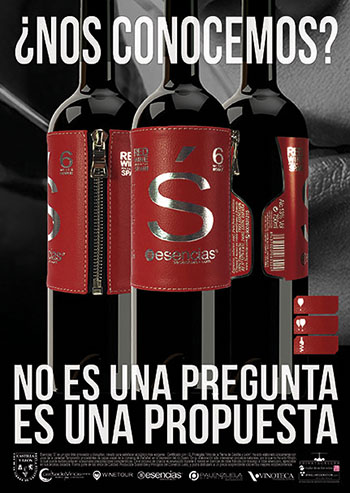
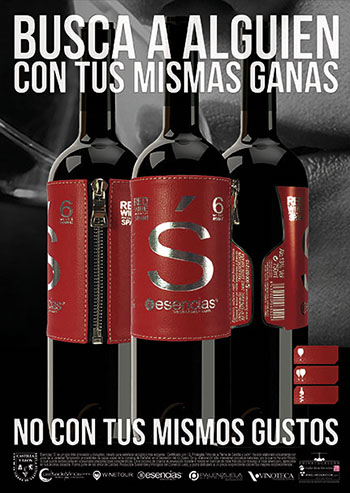
Data sheet.
Bruderkuss München Frauenkirche Rotwein 1,5 L.
Red wine. Bruderkuss. München Frauenkirche Rotwein. Q.b.A. Pfälz. Pfälz. Germany. Merlot, Pinot Black, Portugieser, Dornfelder. Magnum Bottle. 1,5 L..
| Variety | |
| Country of origin |  Germany. Germany. |
| Region of origin |  Pfälz. Pfälz. |
| Appellation of origin |  Q.b.A. Pfälz. Q.b.A. Pfälz. |
| Vintage / Harvest | Currently marketed by the producer. |
| Format | Magnum Bottle. |
| Capacity | 1,5 L. |
| Alcohol content | 13.5% Vol. |
| Visual tasting note | Dark, Honeyed tones, Cherry shades. |
| Olfactory tasting note | Quality toasts, Good woods, Very fruity. |
| Tasting note | Cocoa, Well integrated, Thyme, Fresh development. |
| Recommended pairing | Wildfowl, Smoked sardines, Fish stews. |
| Consumption temperature | 9ºC. |
| Special Format | Magnum Bottle. |
| Typology | Red wine. Q.b.A. Pfälz. |
| Producer | Bruderkuss. |
| Name | München Frauenkirche Rotwein. |
| Weight | 2.000 gr. (2,0 Kg.). |
| EAN | 4250011229846 |
| Comments | 3 Customer reviews. |
| Customers rating | |
| Product reference | WAN4523562 |
| Actual price | 24,95 € . This product is currently not available. |
| Please keep in mind | The information provided and referred to the product features and details has been provided by the expert, manufacturer or producer or published on the official sites. In no case can it be considered as assessment made by our team, unless expressly stated otherwise. We suggest you to refer to the comments and reviews posted by our customers and users to expand and contrast this information. |
| Misreading | Our team provides this information and details in ESPAÑOL language. If you browse in another language note that the information contained may have been translated from the original language through an automated real-time process that has not been supervised by our human team. In case of doubt, misunderstanding or misreading about the content of this information you should refer to the original version of this page or contact our customer service team. |
| Product image | The product image or its label is only relevant for graphic purposes, so it may not match the identification of the vintage or other features and details of the product for sale. This product is provided in the conditions and format in which it is marketed at the current time. This product is not identified or supplied in a specific vintage. The product image and label may not match the vintage identification or other characteristics and details of the product for sale. |
| Country of origin | Spain. This product is shipped from Spain. |
| (UE)401/2010 Certification | Qualitätswein bestimmter Anbaugebiete (Q.b.A.) Q.b.A. Pfälz. |
| Production region | The production region of Q.b.A. Pfälz is located in Las comarcas de la región vinícola del Palatinado, en Alemania. Está localizada al sur del estado federado de Renania-Palatinado y se extiende a pocos kilómetros al oeste del río Rin hasta la frontera con Francia, al sur, a lo largo de toda la zona conocida como Pfälzerwald. |
| Storage position | Lateral position, horizontal bottle. |
| Storage temperature | Store at a constant temperature between 10-17ºC. Humidity should be constant around 60-80%. |
| Recommendations | Keep preferably away from light. |
| Accessories | This product is provided in the conditions and format in which it is marketed at the current time. In cases where the product includes an additional packaging, box and/or case, These accessories will be included in the shipment as long as they comply with the dimensions of the special packaging adapted and approved for the transport of beverages. In general, the images of the products that we publish on our website are only relevant for graphic purposes. The images do not show other accessories such as additional packaging (box, case, etc.) or promotional elements that may occasionally be included by the manufacturer along with the product. If you wish, we can inform you about the additional packaging, elements and accessories included with the product at the current time. |
| Legal Notice | It is against the law to sell or supply alcohol to, or to obtain alcohol on behalf of a person under the age of 18 years. If you are not more than 18 years old, you must leave this website. |
| Consumption | It is recommended to drink in moderation and demonstrate a responsible consumption of alcoholic beverages. |
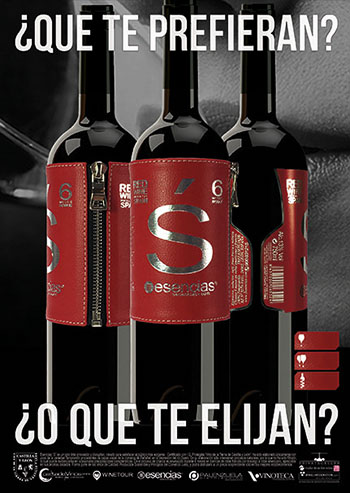
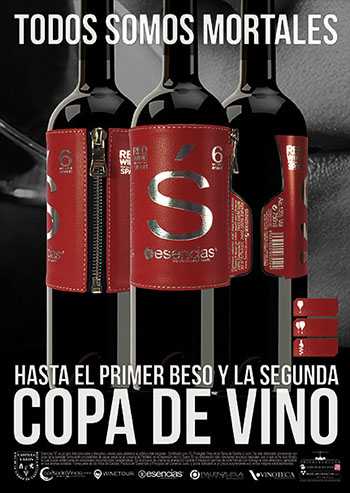
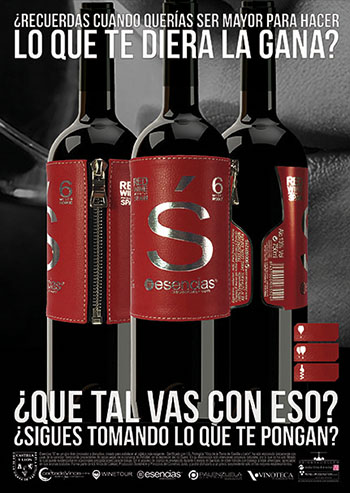
 Italy
Italy France
France Argentina
Argentina United States
United States Australia
Australia Portugal
Portugal Chile
Chile New Zealand
New Zealand South Africa
South Africa



 Austria
Austria



 Tokaj-Hegyalja
Tokaj-Hegyalja





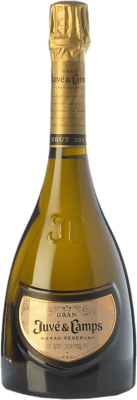
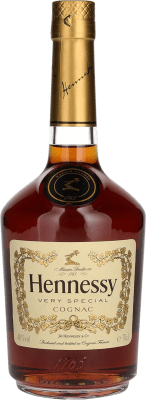
























 Language English
Language English






































Gran sabor
Profundidad completa de sabor largo nariz floral limpia - fantástico - todo lo que uno pueda desear.
Todo un regalo
Oscuro y con mucho potencial.
Con un gran potencial, he decidido reservarlo para que se desarrolle por completo ¡Lo malo es que no sé si podré esperar!